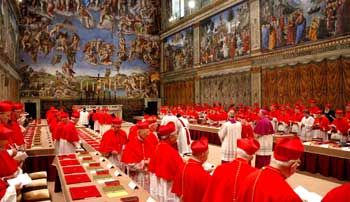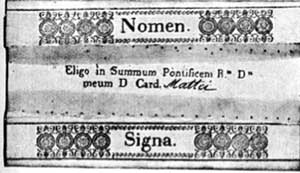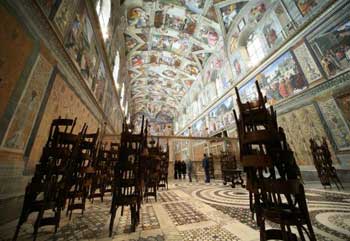“May the Lord, who guides our hearts in the love and patience of Christ, be with you all.”
“Venerable Brothers, after having celebrated the divine mystery, we now enter into Conclave to elect the Roman Pontiff.
The entire Church, joined with us in prayer, constantly calls upon the grace of the Holy Spirit, to elect from among us a worthy Pastor of all of Christ’s flock.
May the Lord direct our steps along the path of truth, so that, through the intercession of the Blessed Virgin Mary, the Apostles Peter and Paul, and all the saints, we may always do that which is pleasing to him.”
With these words, once the mass “Pro Eligendo Romano Pontefice” (“For the Election of the Roman Pontiff”) is over, Cardinal Giovanni Battista Re will invite all those Cardinals elegible to vote, to proceed to the Sistine Chapel, where the Conclave will take place.

“Leeeeeeeet’s get ready toooooooooo … cast a vote!”
The ballots have been printed and cut, the two stoves have been installed, and the chimney has been put in place.
The Conclave officially starts at 5:00 p.m. – after prayers, the Cardinals will hold a first vote.


